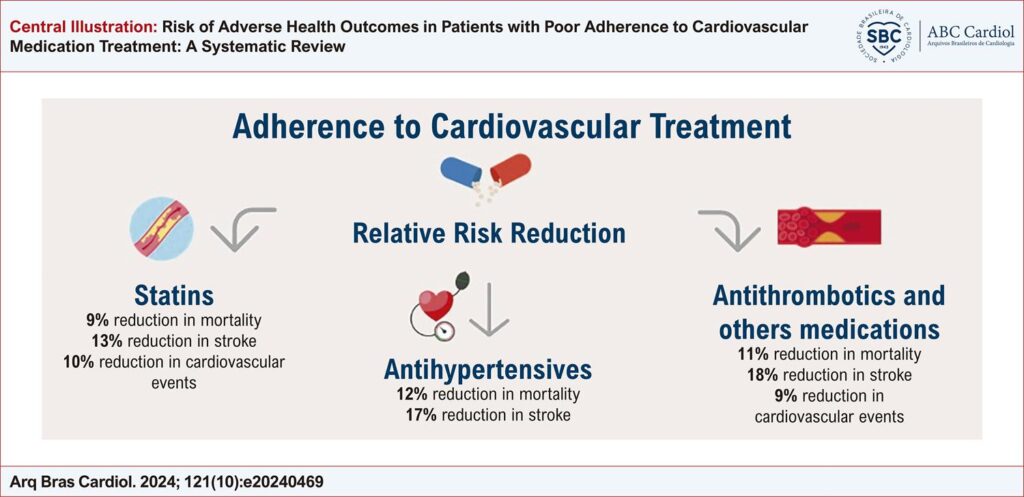Arq. Bras. Cardiol. 2024; 121(10): e20240469
Risk of Adverse Health Outcomes in Patients with Poor Adherence to Cardiovascular Medication Treatment: A Systematic Review
Abstract
Background
Cardiovascular diseases (CVD) remain the leading cause of mortality worldwide. Medication adherence is an important issue in managing chronic CVD, directly influencing outcomes and healthcare costs.
Objectives
This systematic review, supported by the Brazilian Society of Cardiology, evaluates the impact of poor adherence to cardiovascular medications on critical clinical outcomes such as death and cardiovascular events.
Methods
A comprehensive search was conducted across four databases, including Medline, Embase, Lilacs, and the Cochrane Library. The review included systematic reviews with meta-analyses that reported risk estimates for adherence to cardiovascular medications. Four systematic reviews, each incorporating observational studies, were selected.
Results
An increase in adherence to medications significantly reduces the risk of cardiovascular events, stroke, and all-cause death. Specifically, a 20% improvement in adherence to antihypertensive, lipid-lowering, and other cardiovascular medications correlated with reductions in cardiovascular events by 7%, 10%, and 9%, respectively; stroke by 17%, 13%, and 18%; and death by 12%, 9%, and 10%. The certainty of the evidence was moderate, suggesting that these effects are likely present. These findings emphasize the importance of enhancing medication adherence to improve clinical outcomes in CVD management.
Conclusions
Evidence has demonstrated reductions in hard endpoints in both primary and secondary prevention through the control of conditions such as hypertension and elevated LDL cholesterol concentrations, as well as the benefits of antiplatelet therapy in atherosclerotic disease. However, additional studies are needed to better elucidate the relationship between adherence to cardiovascular medications and the improvement of critical clinical outcomes.
1,186

